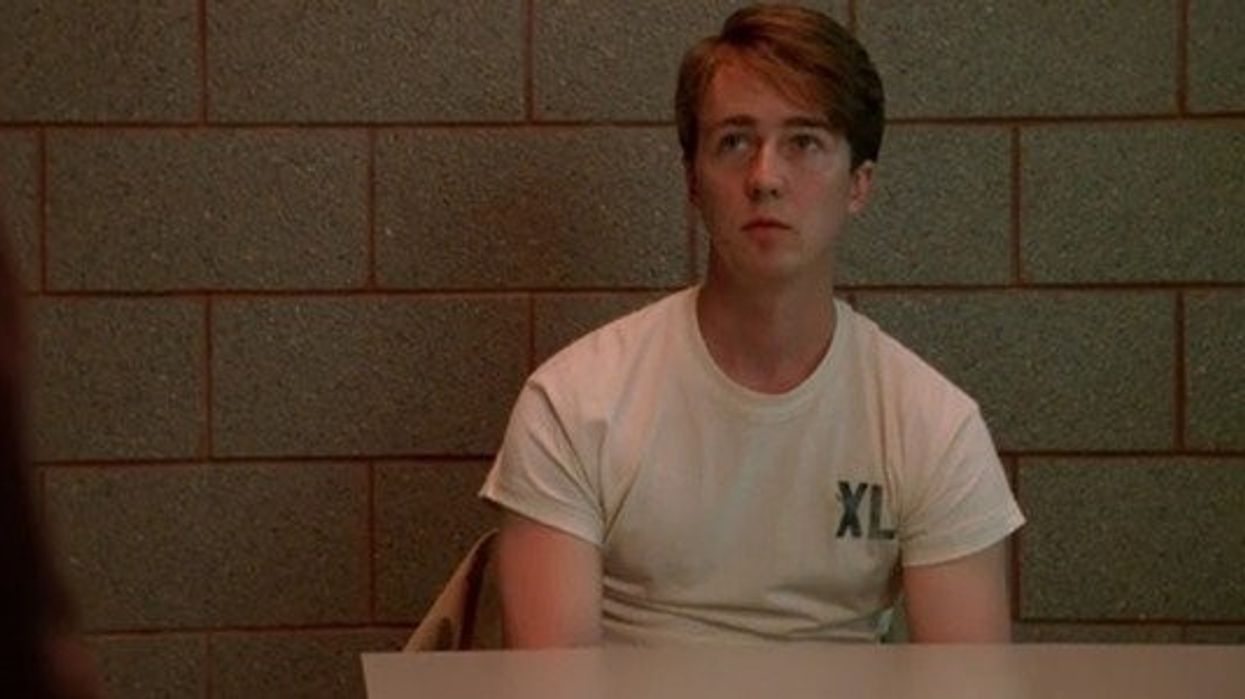How Leonardo DiCaprio Was Almost In 'Primal Fear'
Just about every actor, no matter how famous they may become, has that one person they feel like they always used to lose roles to when they were first starting.

Or, in the case of Ed Norton, the actor who got them roles by turning projects down. In an interview with Yahoo, Norton revealed how the cast of Primal Fear came together—and how Leonardo DiCaprio was the original choice to play Aaron Stampler.
DiCaprio had turned the role down, possibly because it wasn't fleshed out enough, and the script wasn't where it needed to be.
"The role was not very fully formed. It wasn't what it became in the film. It was not so clearly defined as a complete con. Leonardo DiCaprio, who's a really good pal of mine, he had passed on it. Weirdly that did a weird thing to me, because of course, it's like, a once-in-a-lifetime career shot. But I thought Leo was terrific, I really thought he was one of the better young actors around. I thought he was right. I was like, 'This is a mess.' It was a mess. [Director Greg Hoblit] thought it was a mess, Richard [Gere] kind of thought it was a mess. But then when I came into it, everybody really realized, 'We really need to fix this.'"
It's a writer's nightmare to hear this, but Norton tells Yahoo that it was him and his co-star Richard Gere who ultimately created the role as we know it today and the twist of Primal Fear.
That said, while it may seem like a diva stereotype that an actor would take control of what their character would do or say, that's not the scenario that Norton is describing—and it is often the case that casting a particular actor can cause a director and/or writer to see a character in a different light and make adjustments to the strengths of the cast they've hired. This happens a lot in television when writers get to know actors over a long period of time and start to craft material specifically for them to play.
What it sounds like Gere and Norton were most responsible for on Primal Fear is the tone.
Gere talked to Yahoo about how easily a thriller like Primal Fear could have been a "bad B-Movie" if they didn't get everything right.
Tone is one of the most collaborative elements of filmmaking. Screenwriters set the tone on the page to attract directors and actors to the story they want to tell. Directors set the tone on set, and editors have the final say in tone. When we talk about actors who "get the assignment," that assignment is tone 99% of the time.
Norton didn't just get the assignment, he did an independent study.
Source: Yahoo Entertainment











